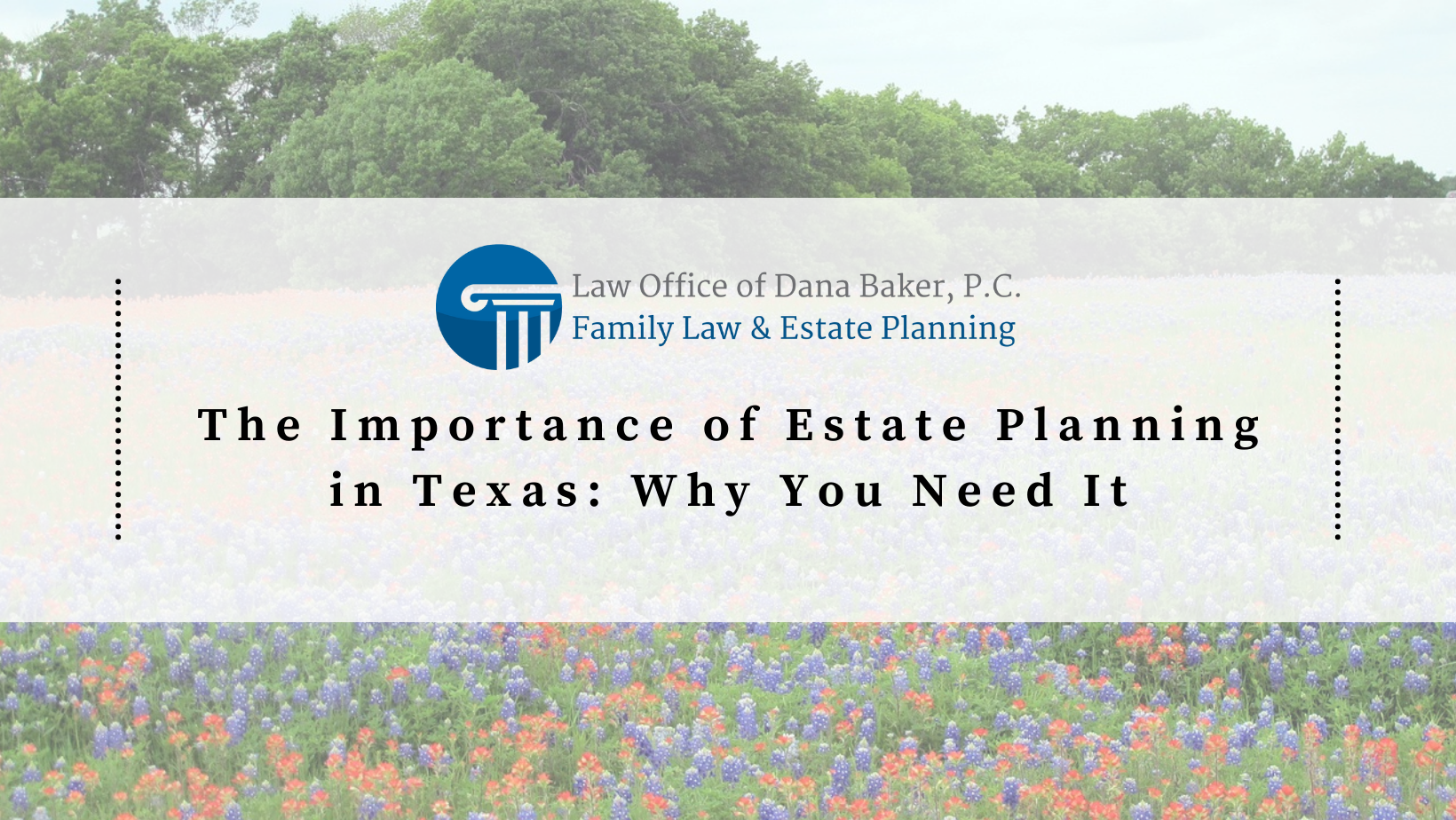Schedule Your Free 15-Minute Phone Consultation
(979) 865-0000

Estate planning, often mistakenly believed to be reserved for the wealthy, is in fact a vital process for individuals at all financial levels. If you reside in the Lone Star State and have assets, beneficiaries, or simply wishes regarding your healthcare, then it’s crucial to understand the significance of estate planning under Texas law. Let’s dive deep into the main purpose of estate planning and why it’s essential for Texans.
Without an estate plan in place, Texas laws will determine how and to whom your assets are distributed upon your death. These laws, called intestacy laws, might not reflect your wishes. Crafting an estate plan allows you to specify who gets what, ensuring that your wishes, not the state’s default laws, govern the distribution of your assets.
If you have children or beneficiaries who are minors, an estate plan allows you to set up trusts or custodial accounts to ensure they are financially protected. Additionally, in Texas, you can designate a guardian for your minor children in the event of your untimely death.
While Texas probate is considered more straightforward than in many other states, the process can still be time-consuming and may expose your estate to additional expenses. Certain estate planning tools, like living trusts, can help your heirs avoid the probate process altogether.
By clearly documenting your wishes, you reduce the potential for disputes among family members after your passing. Ambiguities can lead to legal battles, strained relationships, and unintended consequences. A well-drafted estate plan brings clarity.
Estate planning isn’t just about distributing assets. What if you become incapacitated and can’t make decisions for yourself? By setting up powers of attorney and healthcare directives in Texas, you can dictate who makes financial and medical decisions on your behalf, ensuring they align with your wishes.
Although Texas doesn’t impose a state estate tax, federal estate taxes can be significant for larger estates. A proper estate plan can help reduce or even eliminate these taxes, ensuring more of your hard-earned assets go to your chosen beneficiaries rather than the taxman.
Perhaps the most overlooked, yet critical, reason for estate planning is the peace of mind it provides. Knowing that your affairs are in order and that your loved ones are provided for can alleviate a significant amount of worry.
Estate planning in Texas is not a one-size-fits-all endeavor. Everyone has unique needs, assets, and family dynamics. While it might be tempting to postpone, remember that estate planning is not just for your benefit. It’s for the loved ones you leave behind. Engaging with an experienced Texas estate planning attorney can help ensure that your intentions are clearly documented and legally enforceable. After all, your legacy deserves nothing less.